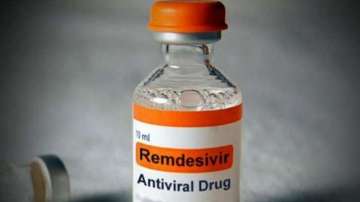During COVID 19 second wave in India, a number of people are seen hunting for oxygen cylinders, ICU beds and many more medical facilities across the country. Remdesivir is also one of the drugs many have been searching for their loved ones. So, what is Remdesivir? Is this a life saving COVID 19 drug? Should it be given to every coronavirus positive patient? Can Remdesivir be given to COVID patients treated at home? Know all about it here:
According to an infographic video shared by PIB fact check, a verified Twitter account by the government of India to counter misinformation on govt. policies/schemes, Remdesivir is an experimental investigational drug that is granted for emergency authorisation use only. It is advisable for people who are moderately sick and are receiving oxygen. Furthermore, studies do not show mortality reduction with this drug. Moreover, Remdesivir is to be administered in hospitals settings only and it should never be given in home settings.
Also read | COVID-19: Dos and Dont's in home isolation - the AIIMS guidelines
According to the official website of the National Institutes of Health, Remdesivir can have some adverse effects too. It can cause gastrointestinal symptoms (e.g., nausea), elevated transaminase levels, an increase in prothrombin time (without a change in the international normalized ratio), and hypersensitivity reactions.
Also read | COVID LIVE Update: Global caseload tops 160mn, US continues to be worst hit, India at 2
Meanwhile, India recorded 362,727 new Covid-19 infections and 4,120 deaths on Thursday, taking the caseload tally to 23,703,665, according to Health ministry website. With this, the total cases of COVID-19 in India have now mounted to 23,703,665. According to the data shared by the Union Health Ministry, the country saw a total of 3,52,181 discharges in the last 24 hours, taking the total recovery to 1,97,34,823.
A total of 17,72,14,256 people have so far been vaccinated against COVID-19 in India.
For more health updates click here!
For latest news related to coronavirus, click here!
